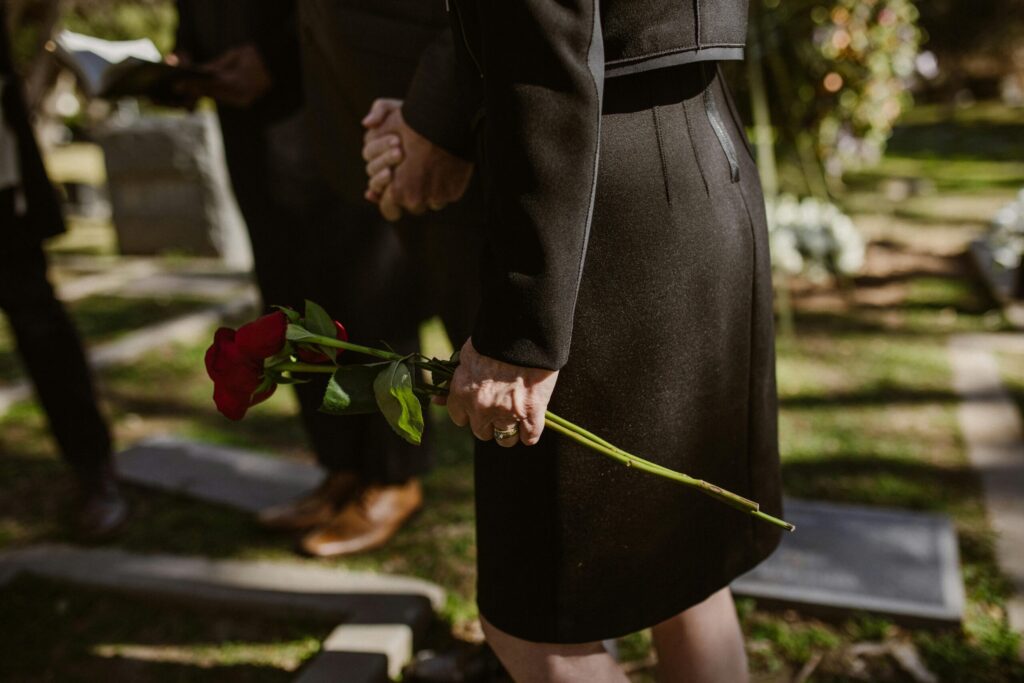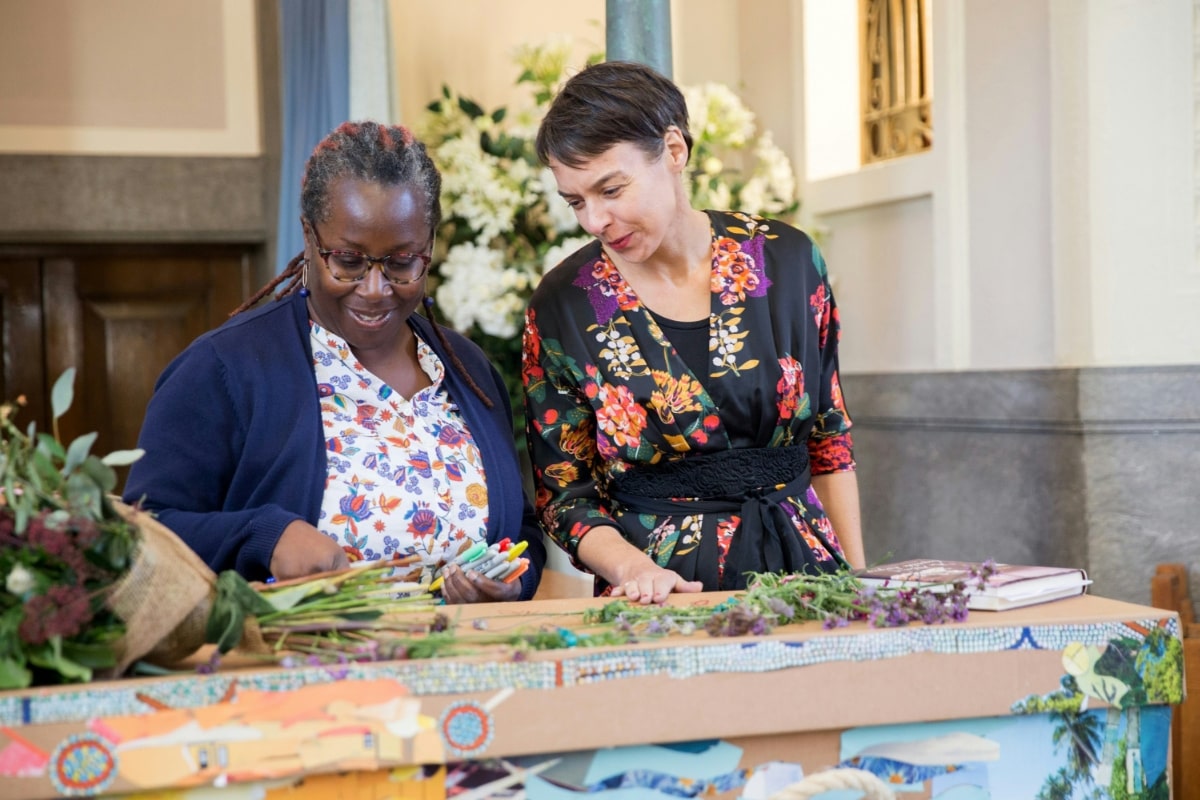
Funerals have been around for thousands of years and are rooted in tradition, but as the times change, so are the ways we arrange funerals. This can lead of outdated assumptions about funerals, or confusion about what a funeral should contain. As a funeral director with more than 100 years’ experience, we’re here to set the record straight. In this blog we’ve debunked some of the common myths surrounding funerals to help you make informed decisions when planning a loved one’s funeral.
1. I have to call the funeral director as soon as possible
When someone dies at home, many people will call the funeral director straight away to alert them of the death. The funeral director will usually arrange for the deceased to be collected as they receive the phone call.
Whilst there is nothing wrong with this, one of the most common myths is that you have to call a funeral director as soon as a person has died. The reality is that you don’t have to inform your funeral director straight away. You can keep your loved one at home with you for as long as you need, and there is no rush to have them collected.
We know how important this extra time at home with a loved one can be for many families, and we want all our customers to know that they can take as long as they need before picking up the phone. When the time feels right and you feel ready to make the call, we’ll be here to offer our full care and support.
2. The deceased will reside at the funeral home
Something that many families don’t consider is where the deceased will reside whilst in a funeral director’s care. The assumption may be that your chosen funeral director will have mortuary facilities on their premises to care for the deceased. Whilst this is true for some funeral directors, this isn’t always the case.
Larger funeral director chains, or those with multiple locations, are much more likely to house the deceased in out-of-town mortuary facilities or centralised mortuary hubs. Whilst there is nothing to prevent companies doing this, it does remove the personalised care and attention a person may receive in death.
The good news is, for anyone arranging a funeral with Dillamore, you can take comfort in knowing that your loved one will stay with us from the moment we collect them until the day of the funeral. We have extensive facilities on our premises to care for the deceased and we provide them with the care and respect we would extend to our own families. We hope this helps to give every family the peace of mind that their loved one is taken care of during their time with us, and an added benefit is the flexibility this provides for anyone wishing to visit their loved one in our Chapel of Rest.
3. You have to have a funeral service
One of the biggest funeral myths is that you have to have a funeral service. In the UK you are not legally obligated to hold a funeral service, but you are required to bury or cremate the deceased. Many people still choose to hold a funeral service or memorial service, but there is no law that says you have to.
In more recent years, direct cremations and burials have increased in popularity. A direct funeral is a funeral without a service. This is where the deceased is taken straight to the crematorium or burial site and there is no formal service.
Direct burials are always unattended, but at a direct cremation you have ‘attended’ or ‘unattended’ options. At an attended direct cremation, the crematorium will allow you (up to 8 people) to be present in their on-site chapel, for up to ten minutes, prior to the cremation taking place.
At Dillamore, we understand just how important it is to say goodbye. For any family choosing a direct funeral with us, we will welcome you to visit you loved one in our Chapel of Rest prior to the funeral. You may even like to hold a mini memorial for immediate family should you wish.
4. All funerals are expensive
This myth is a little more nuanced. Yes, funerals can be expensive – with the cost of funerals rising year-on-year, we understand just how much financial strain this can place on the bereaved. However, funerals don’t have to be expensive and there are lots of ways to make funerals more affordable.
One of the main ways to reduce the cost of a funeral is by opting for a direct funeral. Because there is no funeral service, you negate the need for many third-party costs, such as venues, officiant fees, funeral cars and flowers, so the costs are dramatically reduced. Direct funerals at Dillamore are the most cost-effective funeral option we provide, and they are increasing in popularity. They can take thousands of pounds of the cost of a funeral.
If having a funeral service is important to you, we also provide a Simple Service funeral package. This option includes a service but contains just the essentials to help keep the costs down. At Dillamore we work with every family to ensure they can provide their loved with a dignified goodbye, whilst respecting the need to provide affordable funerals.
5. Embalming the deceased is compulsory
The practice of embalming is used to preserve a person’s body and delay the natural processes that occur after death. Embalming is a very common practice in the UK and around the world, and one myth we often come across is that you have to get a loved one embalmed. The reality is there is no law or regulation that enforces embalming in the UK, and the decision is entirely down to you.
There are times when a funeral director may advise a family to consider embalming, particularly if a family plans to visit their loved one or are wishing to have an open coffin at the funeral, but there is no obligation to agree. In fact, there are times when embalming is avoided entirely, such as at a green funeral or for religious or cultural reasons. If you have questions about embalming then speak to your funeral director – they should answer any questions you have with openness and honesty.
6. Funeral directors take control of all funeral arrangements
A good funeral director should be flexible in the way they work. Some families want full support from their funeral director, whilst others opt to arrange the funeral themselves. Your funeral director will be able to oversee a wide range of tasks, from administrative and legal duties and paperwork through to organising the funeral and service, securing burial plots and arranging memorials.
The role as a funeral director isn’t to take full control of everything, it’s to work alongside families and providing support where it is needed. Our team can provide as much or as little organisational support as you need, and will be guided by you at every step of the way.
Ready to find out more?
If you are recently bereaved, or would like to speak to us about anything funeral-related, we can be reached on 01525 372210 or email us on our contact form.
We are here for you every step of the way.



